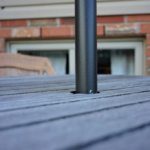In today’s fast-paced world, millions of people are battling the debilitating effects of anxiety and depression. The impact of these conditions on one’s physical and mental well-being cannot be underestimated. Fortunately, there are strategies and techniques that can significantly reduce the symptoms of anxiety and depression, providing individuals with a path towards a more balanced and fulfilling life. In this comprehensive guide, we’ll explore various methods to help you alleviate the burdens of anxiety and depression, allowing you to regain control over your life.
Understanding Anxiety and Depression
Before diving into the strategies to alleviate these conditions, it’s essential to comprehend what anxiety and depression truly entail.
Anxiety
Anxiety is a natural response to stress. It’s a feeling of unease, such as worry or fear, that everyone experiences at some point in their lives. However, when anxiety becomes excessive and uncontrollable, it can escalate into a disorder. Common symptoms of anxiety include restlessness, muscle tension, and excessive worrying.
Depression
Depression, on the other hand, is characterized by persistent feelings of sadness and a loss of interest or pleasure in activities. It can lead to a variety of emotional and physical problems and can decrease a person’s ability to function at work and at home. Symptoms of depression may include fatigue, changes in appetite, and a sense of hopelessness.
The Power of a Healthy Lifestyle
One of the most effective ways to reduce symptoms of anxiety and depression is by embracing a healthy lifestyle. Your daily habits play a significant role in your mental well-being. Here’s what you can do:
Regular Exercise
Exercise is a natural mood booster. Physical activity releases endorphins, which are known as “feel-good” hormones. Engaging in regular exercise, whether it’s yoga, jogging, or simply taking a walk, can help alleviate symptoms of anxiety and depression.
Balanced Diet
Consuming a balanced diet with a focus on fruits, vegetables, lean proteins, and whole grains provides your body with the nutrients it needs to function optimally. Nutrient deficiencies can exacerbate symptoms of anxiety and depression, so nourishing your body is essential.
Sufficient Sleep
A lack of sleep can intensify symptoms of anxiety and depression. Ensure you’re getting a good night’s sleep by maintaining a consistent sleep schedule and creating a relaxing bedtime routine.
Also check: Prevent and Relieve Back Pain with Effortless Micromovements
Mindfulness and Meditation
Practicing mindfulness and meditation can significantly reduce symptoms of anxiety and depression. These techniques help you stay in the present moment and cultivate a sense of calm.
Mindfulness
Mindfulness involves paying attention to your thoughts and feelings without judgment. This practice can help you manage stress and anxiety effectively. Techniques such as deep breathing and visualization are often incorporated into mindfulness exercises.
Meditation
Meditation involves the repetition of a mantra, focusing your attention, or simply sitting in silence. Regular meditation can help reduce anxiety and depression by promoting relaxation and emotional balance.
Also check: The Power of Crunches
Professional Help
In some cases, the symptoms of anxiety and depression may be too overwhelming to tackle alone. Seeking professional help is a crucial step towards recovery.
Therapy
Therapists, such as psychologists and psychiatrists, can provide valuable guidance and support. Cognitive-behavioral therapy (CBT) is a common approach used to help individuals manage anxiety and depression.
Medication
In certain cases, medication may be prescribed to alleviate severe symptoms. Antidepressants and anti-anxiety medications can be highly effective when used under the supervision of a qualified healthcare provider.
Also check: 10 Best Lean Protein Foods
Support Systems
Building and maintaining a strong support system can be instrumental in managing anxiety and depression. Connect with friends and family who can offer emotional support and understanding.
Also check: Eating for Healthy Skin
Conclusion
Anxiety and depression are formidable opponents, but they can be effectively managed with the right strategies in place. By adopting a healthy lifestyle, practicing mindfulness and meditation, seeking professional help when needed, and fostering a strong support system, you can significantly reduce the burden of these conditions in your life.
Remember, it’s essential to consult with a healthcare professional to create a tailored plan that suits your unique situation. With determination and the right approach, you can regain control over your life and embark on a journey towards a brighter, more fulfilling future.









